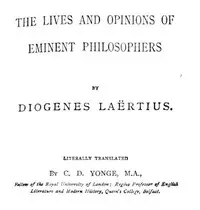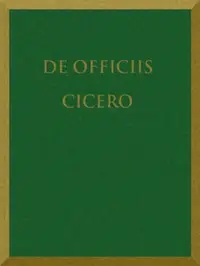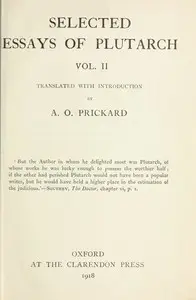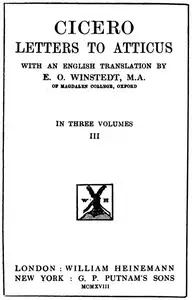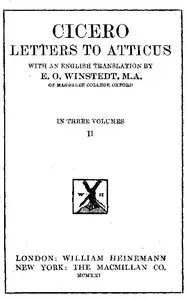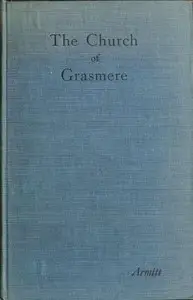"The Academic Questions, Treatise De Finibus, and Tusculan Disputations" by Marcus Tullius Cicero is a philosophical book that explores Greek philosophical ideas. With the goal of making philosophy understandable, Cicero presents conversations about ethics, virtue, and the good life. The story begins with Cicero and his friends discussing why philosophy, especially Greek philosophy, is important. They talk about how philosophy can make people and society better while considering philosophers like Socrates and Plato. The book reflects on the value of translating Greek ideas into Latin to improve understanding. It shows how important it is to discuss complicated ideas in a way that people can understand.
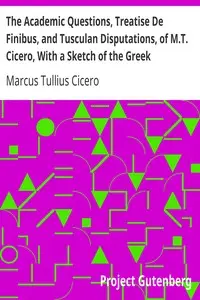
The Academic Questions, Treatise De Finibus, and Tusculan Disputations, of M.T. Cicero, With a Sketch of the Greek Philosophers Mentioned by Cicero
By Marcus Tullius Cicero
Embark on thought-provoking discussions about morality and virtue, as friends explore the enduring relevance of Greek philosophy to guide them toward enlightened living.
Summary
About the AuthorMarcus Tullius Cicero was a Roman statesman, lawyer, scholar, philosopher, writer and Academic skeptic, who tried to uphold optimate principles during the political crises that led to the establishment of the Roman Empire. His extensive writings include treatises on rhetoric, philosophy and politics. He is considered one of Rome's greatest orators and prose stylists and the innovator of what became known as "Ciceronian rhetoric". Cicero was educated in Rome and in Greece. He came from a wealthy municipal family of the Roman equestrian order, and served as consul in 63 BC.
Marcus Tullius Cicero was a Roman statesman, lawyer, scholar, philosopher, writer and Academic skeptic, who tried to uphold optimate principles during the political crises that led to the establishment of the Roman Empire. His extensive writings include treatises on rhetoric, philosophy and politics. He is considered one of Rome's greatest orators and prose stylists and the innovator of what became known as "Ciceronian rhetoric". Cicero was educated in Rome and in Greece. He came from a wealthy municipal family of the Roman equestrian order, and served as consul in 63 BC.



